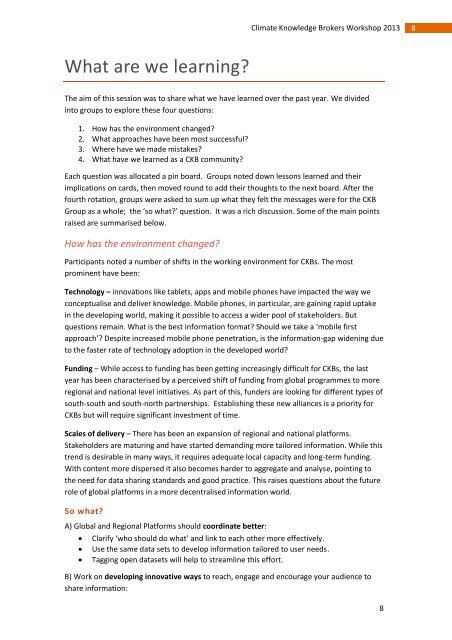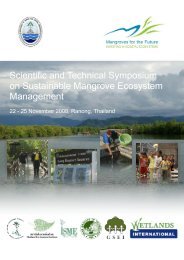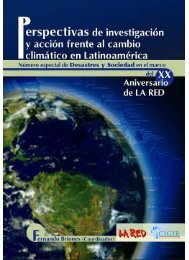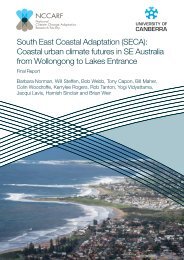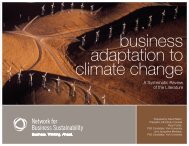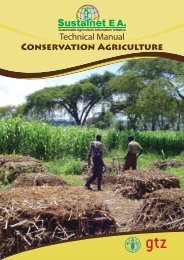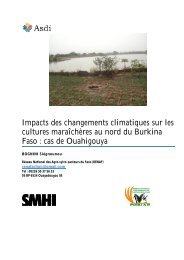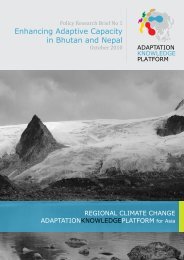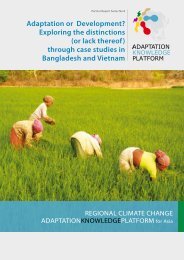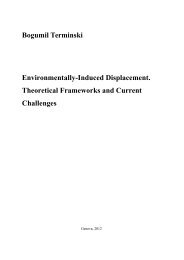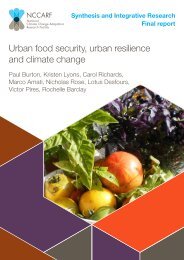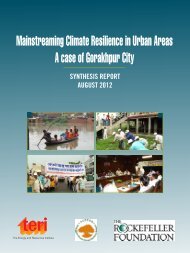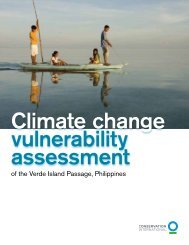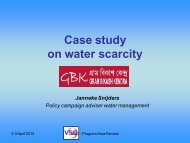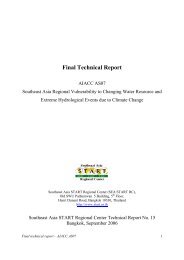You also want an ePaper? Increase the reach of your titles
YUMPU automatically turns print PDFs into web optimized ePapers that Google loves.
Climate Knowledge Brokers <strong>Workshop</strong> 2013<br />
8<br />
What are we learning<br />
The aim of this session was to share what we have learned over the past year. We divided<br />
into groups to explore these four questions:<br />
1. How has the environment changed<br />
2. What approaches have been most successful<br />
3. Where have we made mistakes<br />
4. What have we learned as a CKB community<br />
Each question was allocated a pin board. Groups noted down lessons learned and their<br />
implications on cards, then moved round to add their thoughts to the next board. After the<br />
fourth rotation, groups were asked to sum up what they felt the messages were for the CKB<br />
Group as a whole; the ‘so what’ question. It was a rich discussion. Some of the main points<br />
raised are summarised below.<br />
How has the environment changed<br />
Participants noted a number of shifts in the working environment for CKBs. The most<br />
prominent have been:<br />
Technology – innovations like tablets, apps and mobile phones have impacted the way we<br />
conceptualise and deliver knowledge. Mobile phones, in particular, are gaining rapid uptake<br />
in the developing world, making it possible to access a wider pool of stakeholders. But<br />
questions remain. What is the best information format Should we take a ‘mobile first<br />
approach’ Despite increased mobile phone penetration, is the information-gap widening due<br />
to the faster rate of technology adoption in the developed world<br />
Funding – While access to funding has been getting increasingly difficult for CKBs, the last<br />
year has been characterised by a perceived shift of funding from global programmes to more<br />
regional and national level initiatives. As part of this, funders are looking for different types of<br />
south-south and south-north partnerships. Establishing these new alliances is a priority for<br />
CKBs but will require significant investment of time.<br />
Scales of delivery – There has been an expansion of regional and national platforms.<br />
Stakeholders are maturing and have started demanding more tailored information. While this<br />
trend is desirable in many ways, it requires adequate local capacity and long-term funding.<br />
With content more dispersed it also becomes harder to aggregate and analyse, pointing to<br />
the need for data sharing standards and good practice. This raises questions about the future<br />
role of global platforms in a more decentralised information world.<br />
So what<br />
A) Global and Regional Platforms should coordinate better:<br />
<br />
<br />
<br />
Clarify ‘who should do what’ and link to each other more effectively.<br />
Use the same data sets to develop information tailored to user needs.<br />
Tagging open datasets will help to streamline this effort.<br />
B) Work on developing innovative ways to reach, engage and encourage your audience to<br />
share information:<br />
8


